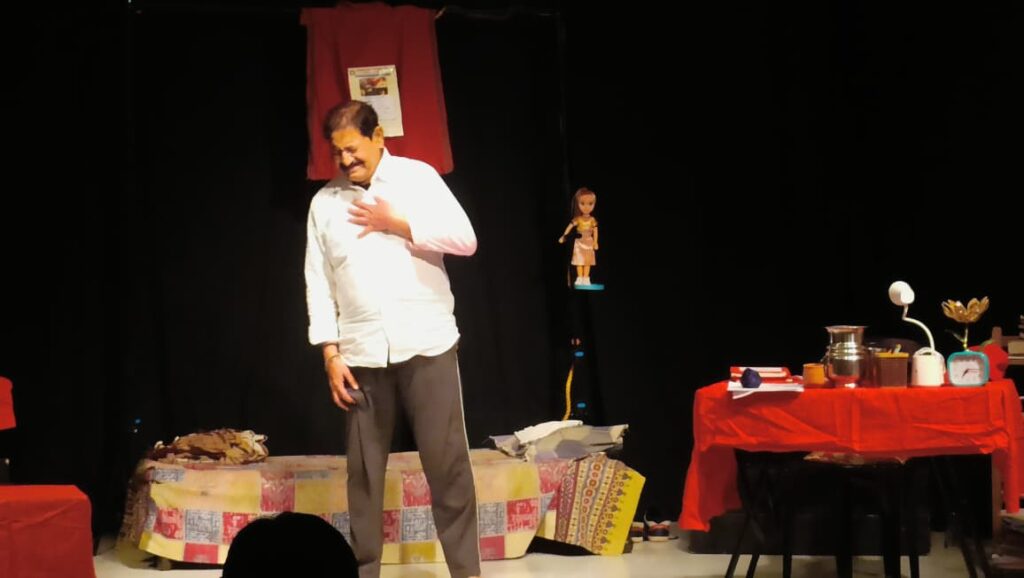A Profound Solo Performance of “Paagal Ki Diary”

On the evening of 12th November in Laxmi Nagar, Delhi, the cultural organization “Shyama Gautam”, Ranchi presented the solo play “Paagal Ki Diary” at 191 School Block, with the support of Third Bell Art & Cultural Society and of 13th November in Mitra Rangmanch, Patparganj, Delhi. Based on Lu Xun’s celebrated short story “A Mad Man’s Diary”, the play was adapted for the stage by Rajesh Kumar and performed as well as directed by Malay Mishra.
The narrative follows the inner journey of a man whose sensitivity compels him to see the world through an unsettling new lens. As he questions long-accepted beliefs, habits and inherited ideas, his diary becomes a reflection of his turmoil—filled with doubt, fear, rebellion and a relentless search for meaning. Malay Mishra portrayed this psychological depth with remarkable intensity, drawing the audience into the character’s fractured inner world.
His performance stood out as the strongest pillar of the production. With subtle shifts in expression, controlled modulation of voice, and a body language that oscillated between restlessness and eerie stillness, he brought the protagonist’s mental disintegration vividly to life. There were moments when the boundary between the stage and the audience seemed to dissolve, making viewers feel as though they had stepped into the character’s mind themselves.
The stage design was minimal yet deeply evocative—a chair, a bookshelf and a handful of objects that created the claustrophobic atmosphere of a solitary, enclosed world. The lighting played a crucial role in shaping the emotional landscape, moving from dim warmth to stark illumination and creating a visual rhythm that mirrored the protagonist’s spiralling thoughts.
The play resonates on multiple levels. Beyond depicting one man’s struggle, it raises unsettling questions about the pressures and unquestioned traditions that often shape human behaviour. The blend of satire and sensitivity allows the story to comment on the fragility of perception and the elusive nature of what society calls “normal”.
As the play progresses, the character’s anxiety intensifies, and this emotional surge reaches the audience as well. Many viewers later described the experience as gripping, disturbing and poignantly insightful. Despite its serious tone, the play holds attention throughout, leaving a lingering impact.
Ultimately, “Paagal Ki Diary” emerges as a powerful theatrical experience—one that goes beyond entertainment to explore the conflicts, contradictions and silent battles within the human mind. Malay Mishra’s direction and performance elevate the narrative to an impressive artistic height. The Delhi staging by “Shyama Gautam”, Ranchi turned out to be a memorable evening of profound thought and compelling theatre.